




Students receive information in assemblies from Heads of Subjects






Choosing the right options to study in years 10 and 11 is very important, and we strongly advise that parents and students attend the KS4 Curriculum Evening to receive information about the choices available.
The Options Booklet and form will be available online, the links to these will be emailed to all parents and students and will be available on The Westleigh School website. We will also provide students and parents with paper copies.
Options forms should be completed online by Tuesday 19th March.
We aim to give all students their first choice option subjects, however, this is not always possible.
Some subjects will not run and others will be oversubscribed, so please ensure all reserve choices are carefully considered.


• We expect high demand for GCSE Technology and Hospitality and Catering and so second choices are very important.
• When reading through the information be clear on whether the course is a GCSE course or another qualification.
• Please be aware that numbers if numbers are low, the option subject will not continue to be offered

Parents and Carers,
Thank you for taking the time to read through this Curriculum Choices Booklet which provides you with information and guidance to support your child through the Choices Process; they will also benefit from discussing the Curriculum Choices Process with you.
The end of this academic year marks the end of Key Stage 3 and your child will embark on a new stage in their educational career, Key Stage 4. It is important that they make the right choice of subjects to study that will help them achieve both the best outcome and to pave the way for their next steps after Westleigh.
Once you and your son or daughter have made your decision, please complete the Google Form below. This has been sent to you via Synergy and has also been uploaded onto our school website under:
Kind regards
Miss R Stafford Assistant HeadteacherName Position
Contact details
Miss Critchley Head of year 9 Kate.critchley@westleigh.set.org
Miss Stafford Assistant Headteacher Rebecca.stafford@westleigh.set.org
Mrs Blyth Head of Maths Laura.blyth@westleigh.set.org
Mrs Molineux Head of English Rebecca.molineux@westleigh.set.org
Miss Griffin Head of Geography Carly.griffin@westleigh.set.org
Mr Cunliffe Head of History Michael.cunliffe@westleigh.set.org
Mrs Fraternale Head of Drama Daniella.fratenale@westleigh.set.org
Mrs Gregory Teacher of Art Rhea.hodgson@westleigh.set.org
Mr Dykes Head of Music Tim.dykes@westleigh.set.org
Miss Lovatt Head of PE alaina.lovett@westleigh.set.org
Mrs Priest Head of Science Jennie.priest@westleigh.set.org
Mrs Ashton Assistant Headteacher/ SENDCO Gill.ashton@westleigh.set.org
Mrs Fontenell Head of Technology Claire.fontenell@westleigh.set.org
Mrs Michalakakos Head of Modern Foreign Languages Anna.michalakakos@westleigh.set.org
Mr Wass
Mr Holdsworth Teacher of Health and Social Care Head of PD and RS Kiefer.wass@westleigh.set.org
Adam.holdsworth@westleigh.set.org
At The Westleigh School we have designed our options choices to give our students a broad and balanced curriculum. Our aim is to ensure our students have a wide range of knowledge and skills that will prepare them for their next steps in life.
There are two pathways for students to choose from. We urge the majority of our students to choose from the Turquoise Pathway but we recognise that some students will benefit from the White Pathway. Here is an overview of the two pathways

All students study the following subjects as their core curriculum:
• GCSE Mathematics
• GCSE English Language
• GCSE English Literature
• GCSE Combined Science (Double award)
• GCSE French
• Core PE (non-examined)
• Personal Development (non-examined)

All students study the following subjects as their core curriculum:
• GCSE Mathematics
• GCSE English Language
• GCSE English Literature
• GCSE Combined Science (Double award)
• Core PE (non-examined)
• Personal Development (non-examined)

Students will pick from one of the two options:
• GCSE History
• GCSE Geography

Students will pick from one of the three options:
• GCSE History
• GCSE Geography
• GCSE French


Students can choose ONE additional subject from the wide range of subjects available
Students can choose TWO additional subjects from the wide range of subjects available
Our Turquoise Pathway will ensure students study
The English Baccalaureate (EBacc). The EBacc is a set of subjects at GCSE that keeps young people’s options open for further study and future careers. It is made up of:
• English Language and Literature
• Mathematics
• The Sciences
• Geography or History
• A Language
A study by the UCL Institute of Education shows that studying subjects included in the EBacc provides students with greater opportunities in further education and increases the likelihood that a pupil will stay on in full-time education.

The Tech Award gives learners the opportunity to develop sector-specific knowledge and skills in a practical learning environment. The main focus is on three areas, which cover:


We recognise that students have preferences for other subjects outside of the EBacc set of subjects, and as such, they have the opportunity to choose one additional subject from our full complement of courses (see the Option 2 column)
Sutton Trust research reveals that studying the EBacc can help improve a young person’s performance in English and Maths.
skills and processes, such as interpreting data to assess an individual’s health, and designing a plan to improve their health and wellbeing attitudes, namely the care values that are vitally important in the sector, and the opportunity to practise applying them knowledge that underpins the effective use of skills, processes and attitudes, including human growth and development, health and social care services, and factors affecting people’s health and wellbeing.

Learners need to have excellent organisation skills and be prepared to work in a real world Health and Social Care setting.
Unit 1: Human Lifespan Development: (Internal)
Learners will study the six different life stages, factors that influence how people grow and develop, along with influencing factors like self-esteem and self-concept.
Unit 1: Health and Social Care Services and Values: (Internal)
Learners study and practically explore health and social care services and how they meet the needs of real service users. They also develop skills in applying care values.
Unit 3: Health and Wellbeing: (External)
Learners will study the factors that affect health and wellbeing, learning about physiological and lifestyle indicators and how to design a health and wellbeing improvement plan.
Further vocational and A Level subjects post 16
Grounding for further work and training schemes in the NHS, social or early years’ sectors







Topics Covered

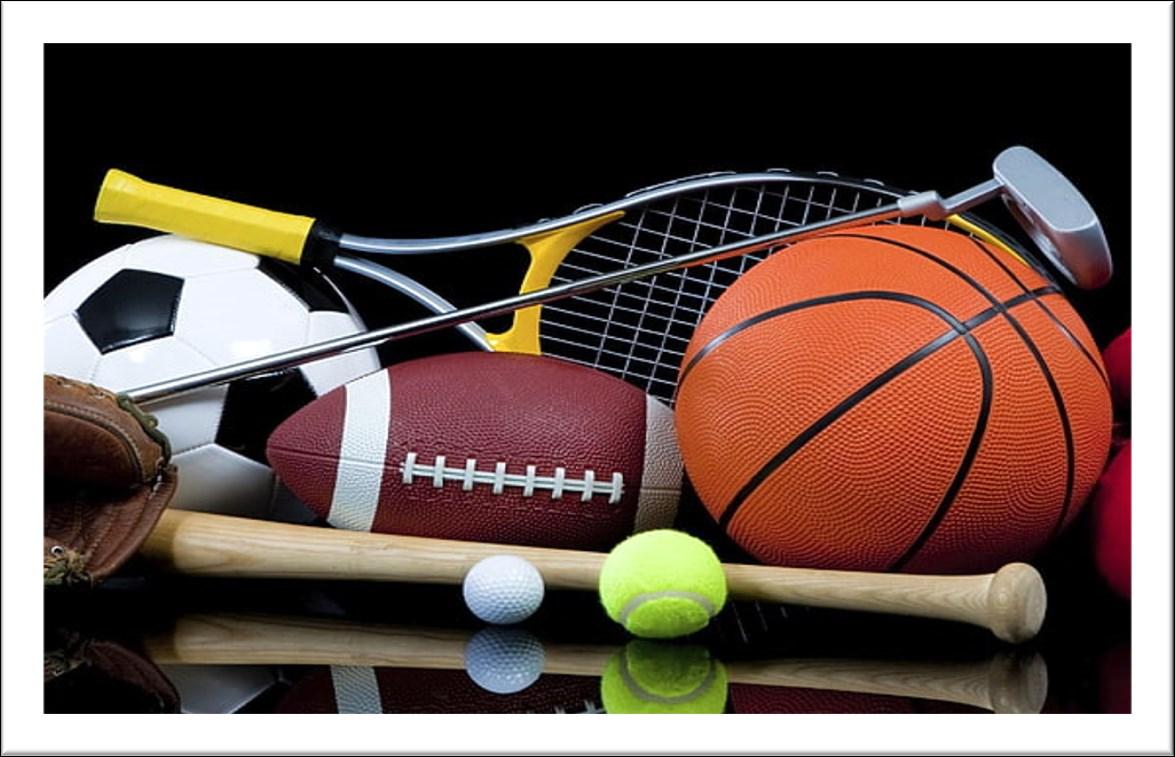


Contemporary issues in sport includes learning about participation levels and barriers to completing sporting activities. How participation is impacted by the promotion of values and ethical behaviour, and how technology is used within sport .
Applying your skills as a performer
Develop your skills as a performer in two different sporting activities, and as a leader. You will work independently and as part of a team. You will officiate one sport and show an thorough understanding of the rules.
Sports Leadership Develop your skills as a leader by recognising the qualities of a good leader. You will complete a risk assessment for a chosen activity. You will plan and lead a sports activity session for your peers.
Participate in an outdoor and adventurous activity in a natural setting and environment. You will find out information about what opportunities there are in your local area as well as nationally
Demonstrate high levels of engagement in current PE lessons and represent our school team in at least one sport demonstrating a commitment to after-school clubs. Be interested in how to be a sports leader/coach. Be prepared to try outdoor adventurous activities such as Mountain Biking, Climbing, Hill Walking or Orienteering. Be able to work independently to complete set assignments. The students will follow the OCR specification and will be awarded a single Grade Pass at Level 1 to Distinction * at Level 2. . Students will have 3 lessons per week in addition to their core PE lesson. 1 lesson of the 3 will be a practical lesson whilst their other 2 lessons will be theory lessons.
Unit Assessment
Contemporary issues in sport Exam (1 hour), 60 marks
Developing Sports Skills Centre assessed task, approximately 10 hours, 60 marks
Perform in 1 team sport and 1 individual sport, officiate 1 sport plus coursework tasks
Sports Leadership Centre assessed task, approximately 10 hours, 60 marks
Plan, lead and evaluate a sports activity session plus coursework tasks
Developing knowledge and skills in outdoor activities
Centre assessed task, approximately 10 hours, 60 marks
Participate in 2 outdoor activities, plan an outdoor activity plus coursework tasks
It will provide an excellent grounding for students wanting to follow careers in coaching, teaching, sports science and sports development. It is also fantastic for developing leadership skills that will be important in any career.
•
•
•
•
Our White Pathway offers a little more choice but does not guarantee that students will study The English Baccalaureate (EBacc).
However, we recognise that some students prefer and would benefit from a wider selection of subjects and as such, the White Pathway provides this.
In the White Pathway, students are not required to study French (but can if they want to) and can choose two subjects from the ‘Open Curriculum’ column.
Parents, please discuss the Turquoise Pathway with your son or daughter before considering the White Pathway

In line with government requirements, all students will take part in at least one hour of physical activity a week.
A wide variety of activities are offered which will give students a range of experiences that will not only develop their practical abilities but also promote an understanding of the benefits of regular physical activity and how it contributes to a healthy, active lifestyle.
Organised with PE kit and prepared to work hard physically to promote health and fitness
Students will take part in a variety of activities that include…
Hockey, Netball, Football, Trampolining, Badminton, Athletics, Rounders, Rugby, Fitness Training, Volleyball, Handball, Basketball, Table Tennis.
Core PE will provide students with the knowledge and confidence to maintain a healthy, active lifestyle beyond the school environment. It will also provide a good grounding for students interested in sports coaching and sports development.

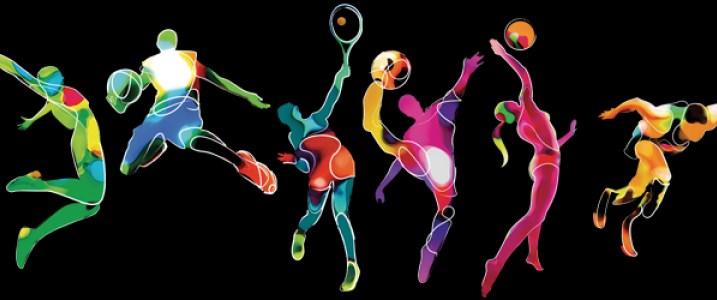
Physical Factors Students will learn about the anatomy and physiology of the human body and understand the science behind physical training.
Socio-Cultural Issues The influences of these issues in sport, the psychology of sport & the importance of health, fitness & wellbeing.
Performance in PE Students will be required to perform in 3 sports, 1 of these must be a team sport and 1 must be an individual sport. The 3rd activity can be either team or individual. Students will complete a piece of coursework which analyse
Demonstrate high levels of engagement in current PE lessons, participate in at least 1 team sport and 1 individual sport outside of school. Have a love for physical activity and how this impacts the human body. Students should also have an interest in human biology and demonstrate a high attitude to learning in science lessons. The students will follow the OCR specification and will be awarded a single GCSE. Grade 91. Students will have 3 lessons per week in addition to their core PE lesson. 1 lesson of the 3 will be a practical lesson whilst their other 2 lessons will be theory lessons.
Physical factors affecting performance (01)
Socio-cultural issues in sports psychology (02)
Performance in Physical Education (04)
Exam (1 hour), 30% of total GCSE, 60 marks.
Exam (1 hour), 30% of total GCSE, 60 marks.
Non -exam assessment, 30%, 60 marks.
Perform in 1 team sport
Perform in 1 individual sport
Perform in 1 team/individual sport
Coursework Task
Analysis and Evaluation of performance (05)
Non -exam assessment, 10%, 20 marks.
GCSE PE will prepare students for A Level PE and other sport related courses. It will provide an excellent grounding for students wanting to follow careers in coaching, teaching, sports science and sports development. It is also fantastic for developing leadership skills that will be important in any career.
Subject Qualification Exam Board
English GCSE English Language AQA
GCSE English Literature AQA
Maths GCSE Mathematics OCR
Science GCSE Trilogy Science AQA
Core PE N/a N/a
History GCSE History Edexcel
Geography GCSE Geography AQA
French GCSE French AQA
The following subjects are on offer, but will only run based on sufficient student numbers.
Art GCSE Art & Design (unendorsed) AQA
Dance BTEC Level 2: Performing Arts: Dance Pearson
Design and Technology GCSE Design Technology Eduqas
Drama BTEC Level 2: Performing Arts: Drama Pearson
Health and Social Care BTEC Level 2: Health and Social Care Pearson
Hospitality and Catering Level 1/2 Technical Award in Hospitality and Catering Eduqas
ICT Level 2 iMedia Cambridge Nationals
Music BTEC Level 2 Music Practice Pearson
PE GCSE Physical Education OCR
Philosophy, Religion and Ethics GCSE Religious Studies AQA
Single Science GCSE Biology GCSE Chemistry GCSE Physics AQA
Sports Studies Level 2: Sports Studies Cambridge Nationals



Understand how hospitality and catering providers operate
Understand how hospitality and catering provision meets health and safety requirements
Know how food can cause ill health
Be able to propose a hospitality and catering provision to meet specific requirements
Understand the importance of nutrition in planning menus
Understand menu planning
Be able to prepare and cook high quality food products.
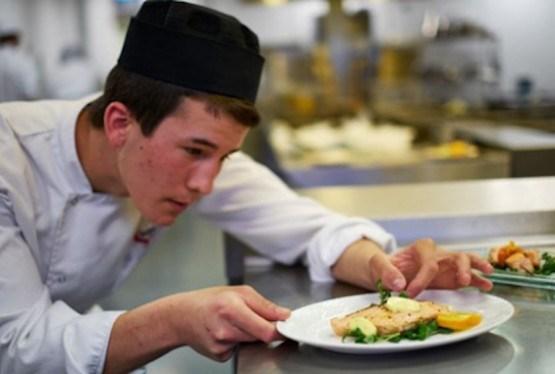
Have a keen interest in the food industry and enjoy working in a practical environment in order to produce high quality practical outcomes.
Unit 1 The Hospitality and Catering Industry (externally assessed)
Students will acquire knowledge of all aspects of the industry. Students will be able to use their learning of different types of establishment and job roles in relation to front of house and kitchen operations to complete an written exam.
Unit 2—Hospitality and Catering in Action (internally assessed)
In this unit students will gain knowledge of the nutritional needs of a range of client groups in order for them to plan nutritional dishes to go on a menu. Students will learn and develop safe and hygienic food preparation, cooking and finishing skills required to produce nutritional dishes.
This award would allow students to pursue further study at local colleges and seek a range of employment options which range from catering assistants to chefs, hotel and bar managers and food technologists in food manufacturing.
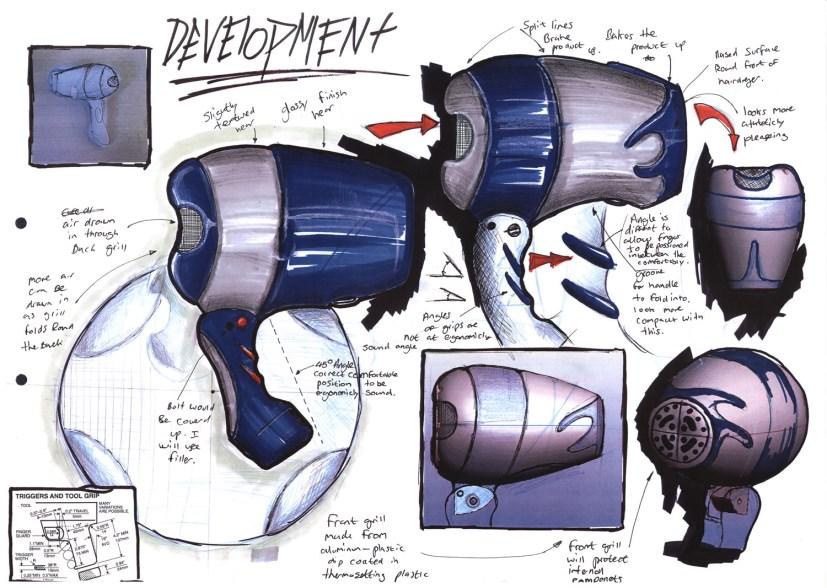
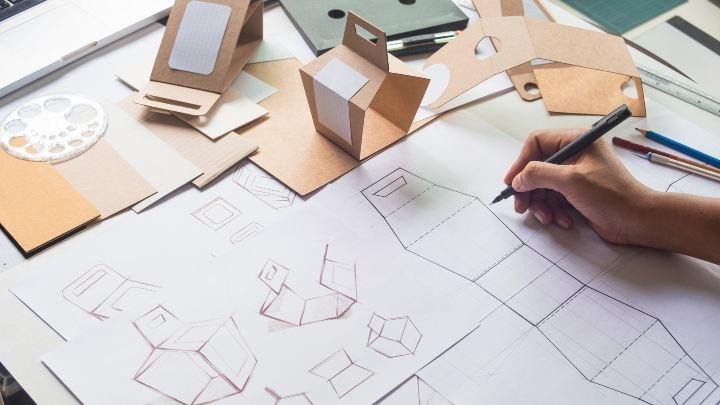
Design and technology is an inspiring, rigorous and practical subject.
Using creativity and imagination, pupils design and make products that solve real and relevant problems within a variety of contexts, considering their own and others’ needs, wants and values.



Students opting for this subject should:
Have a genuine curiosity about how things are designed and made for the world around them.
Be prepared to work independently to solve everyday problems, through academic research and applying technical knowledge of materials, techniques and processes.
Component 1: Design and Technology in the 21st Century (Written examination (externally assessed) - Students will develop knowledge and understanding of a wide range of materials techniques and processes and how technology is having an impact on the design. Students will also investigate client needs, how designers have influenced design, sustainability and environmental issues linked to the design world.
Component 2: Design and Make task (Non-Exam Assessment) Students will demonstrate their design and make skills, carrying out a design and make task, based on a contextual challenge set by the exam board. The NEA asses the students ability to: identify, investigate and outline design possibilities, design and make prototypes, analyse and evaluate design decisions.
This qualification would allow students to pursue further study at local colleges and seek a range of employment options which range from the Engineering Sectors, Product Design, Interior Design and Architecture.
The following pages contain information for each subject regarding the topics covered and the assessment structure of the course.
Please read through carefully so that you and your child are fully aware of the requirements in each subject.




To read, interpret and analyse a range of texts both studied and unseen. To appreciate and evaluate a Shakespeare play, a Victorian novel, a modern play and poetry from romanticism to the present day. To comment on the relationships between texts and the contexts they’re written in.





Students opting for this subject should:
Revise and re-read set texts throughout the course. All literature papers are ‘closed book’ exams; know the texts inside out.
Paper 1: Shakespeare and the 19th Century Novel
1 hour and 45 minutes
A: Shakespeare 1 extract, 1 essay question (20%)
B: 19th Century 1 extract, 1 essay question (20%)Paper
2: Modern Texts and Poetry
2 hour and 15 minutes
A: Modern texts choose 1 of 2 essay questions (20%)
B: Poetry anthology— 1 comparison question (20%)
C: Unseen poetry—2 questions (20%)
Careers and Progression The study of English Literature will enrich students’ understanding of our rich literary heritage and give them opportunities to further study Literature. Typical careers of English Literature students include: law, academic research, broadcasting, advertising.
Biology
Paper 1 = Cell biology; Organisation; Infection and response; and Bioenergetics.
Paper 2 = Homeostasis and response; Inheritance, variation and evolution; and Ecology.
Chemistry
Paper 1 = Atomic structure and the periodic table; Bonding, structure, and the properties of matter; Quantitative chemistry, Chemical changes; and Energy changes.
Paper 2 = The rate and extent of chemical change; Organic chemistry; Chemical analysis, Chemistry of the atmosphere; and Using resources.
Physics
Paper 1 = Energy; Electricity; Particle model of matter; and Atomic structure.
Paper 2 = Forces; Waves; Magnetism and electromagnetism; and Space physics.

Interested in science beyond the classroom and may want to have a science related career. You should be achieving well in science and your teacher will advise on whether separate sciences is for you
For each area of Science there are two written examinations. Each paper is 1hour and 45 minutes long and worth 50% of the GCSE.
There are two tiers of entry, foundation and higher and the questions in the paper will be a mixture of multiple choice, structured, closed short answer and open response. At the end of the course they will have three GCSE’s
Students will be well prepared for A-Level and have the skills and knowledge to follow any scientific programme of study.
“Separate science is excellent. I love the extra detail we go into and I feel fully prepared for A-levels. I feel that it provides me with more opportunities for a career in science”
Students opting for this subject should:
Read for at least 30 minutes daily and read a range of fiction and non-fiction texts; there’s a lot to get through in the exam.

You will be given the opportunity to work as part of a group to create a workshop performance in response to a given brief and stimulus.
Careers and Progression
Arts (Dance) provides a solid foundation for further studies in dance and performing arts.
B: 1 extended writing to express a viewpoint (25%)
Careers and Progression
The study of English Language will equip student with the functional skills that all employers and further and higher education institutions require. Subject specific careers include: copywriting, journalism, publishing, teaching.


The assessments will cover the following content headings:
1 Number
2 Algebra
3 Ratio, proportion and rates of change
4 Geometry and measures
5 Probability
6 Statistics
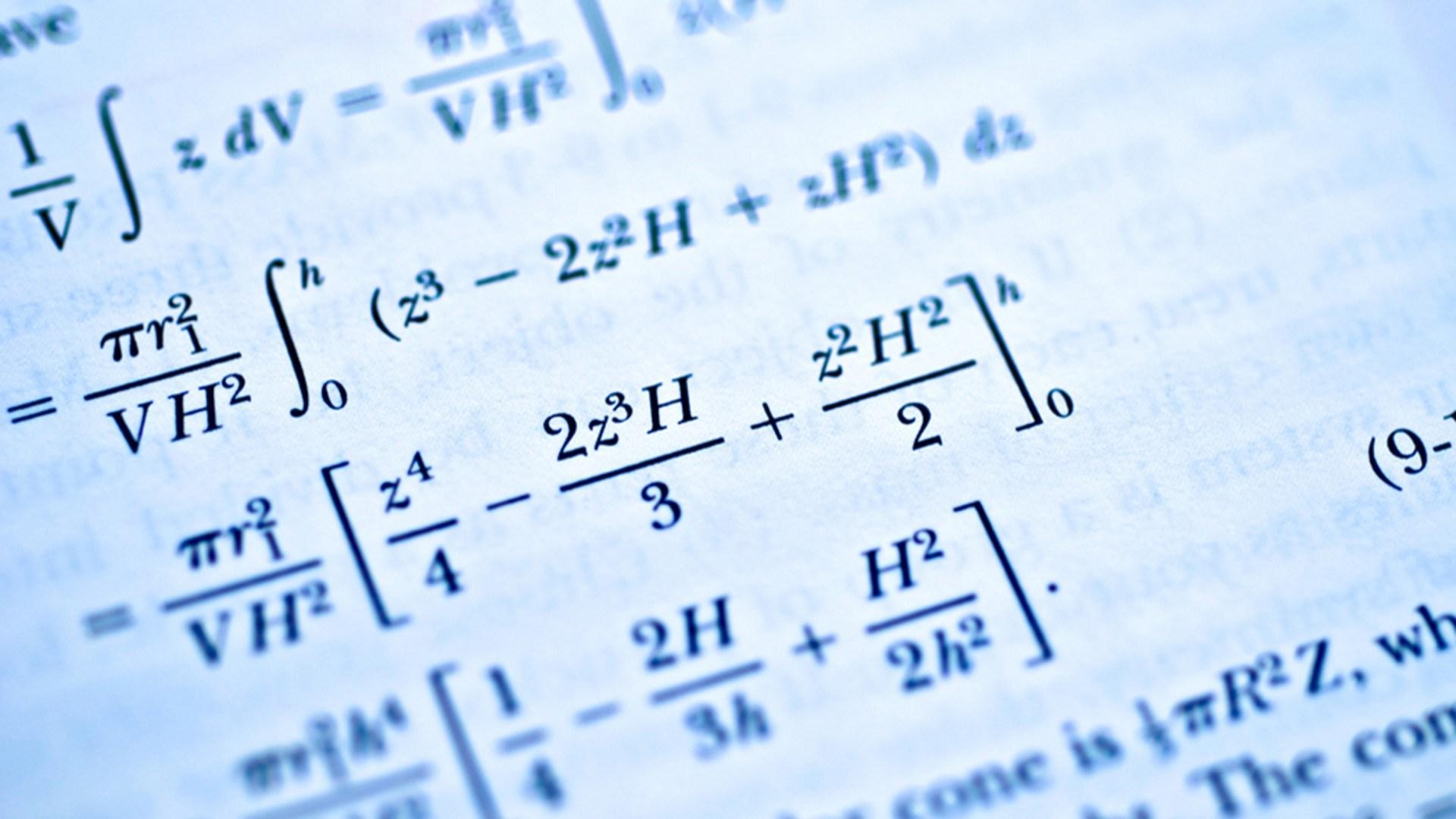
All students follow the GCSE mathematics course. This is assessed at the end of Year 11 using three final examinations; one non-calculator and two calculator papers, each 1 hour 30 minutes long with 100 marks available on each paper.
Students will study at a level that is appropriate for their ability. There are two tiers available - Higher and Foundation. The Foundation tier covers topics that are grades 1-5 and the Higher tier covers topics that are grades 5-9.
All students have 2 lessons in Year 10 and 2 lessons per week in Year 11 and are also offered intervention and revision lessons.
Within the mathematics faculty, students have the opportunity to enhance their learning with the use of ICT and independent study is encouraged through the use of online resources.
Typical careers involving mathematics include: Accountant, Insurance, Architect, Engineer, Economist, Actuary, Medicine, Investment Banker, Meteorologist, Teaching, Statistician and Cryptologist.

• Practical skills: physical/ mental/technical/expressive skills technique for effective performance
• Assessed performances: Working from published play extracts identifying and utilising; lighting, sound, props, costume; mental and physical warm ups; projection suitable for the audience and venue
• Performance management: Knowing how to plan and develop a performance production from idea inception to performance conclusion


Have a genuine passion and interest in the performance industry and have an ability to perform, communicate and problem solve real world sector issues. Resilience and commitment is key.
Component 1 Exploring the Performing Arts (internal assessment)
This unit provides an opportunity for learners to get a taste of what it’s like to be a professional performer and explore all roles within a theatre (30%)
Component 2—Developing skills and techniques in the Performing Arts (internal assessment)
This unit develops and puts into practice the learner’s skills and techniques as a performer including performance of a professional play (30%)
Component 3 Performing to a brief (40%) (external assessment)
This unit develops the learner’s understanding of how practitioners adapt their skills for different context and put this into practice for performance, including devised performance and written accounts of work(40%)
Performing Arts (Drama) will allow students to further progress into higher and further education as well as follow many different careers. It could enable rapid progression into careers associated with the theatre (on and off stage) Police, law, education, therapy roles, nursing , marketing and many more…….
Quotes
‘All the world ’s a stage’
‘Don't expect the theatre to satisfy the habits of its audience, but to change them’



This course will give you the opportunity to develop knowledge and technical skills in a practical learning environment. You will develop key skills, ranging from rehearsing to experimenting with technology, equipment and instruments. You will also develop an understanding of the music industry.
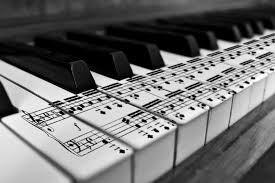

Topics / Skills Covered
Students opting for this subject should:
• Must be happy to perform to an audience.
• Be dedicated and committed to improve as a musician.
Component 1 - Exploring Music Products and Styles
Exploration of the techniques used in the creation of different musical products and investigation of the key features of different musical styles and genres.
Component 2 - Music Skills Development
Development of two musical disciplines through engagement in practical tasks, while documenting their progress and planning for further development
Component 3 - Responding to a Music Brief
Developing and presenting music in response to a given music brief.
Once you have completed the qualification, you will have developed valuable knowledge, practical skills and a wider understanding of the music industry. This qualification will allow you to develop your knowledge and skills through practical and creative application in a vocational context, and by responding creatively to a commercial brief. Since you will be developing skills across a number of disciplines – such as music creation, production and performance – you will have a better understanding of whether the music industry is for you and, if so, which part of it you might want to study further. If you decide to go on to further study of music, the best option for you will depend on the grades you have achieved in this and the other qualifications you have taken, and what you enjoy doing. You could progress to a Level 2 Technical Certificate or to a Level 3 programme, such as A Levels, a T Level or a BTEC National, either on its own or in combination with A levels.
Biology
Paper 1 = Cell Biology; Organisation; Infection and response; and Bioenergetics.
Paper 2 = Homeostasis and response; Inheritance, variation and evolution; and Ecology.
Chemistry
Paper 1 = Atomic structure and the periodic table; Bonding, structure, and the properties of matter; Quantitative chemistry; Chemical changes; and Energy changes.
Paper 2 = The rate and extent of chemical change; Organic chemistry; Chemical analysis; Chemistry of the atmosphere; and Using resources.
Physics
Paper 1 = Energy; Electricity; Particle model of matter; and Atomic structure.
Paper 2 = Forces; Waves; and Magnetism and electromagnetism






For each area of Science there are two written examinations. Each paper is 1hour and 15 minutes long and worth 16.7% of the GCSE. There are two tiers of entry, foundation and higher, and the questions in the paper will be a mixture of multiple choice, structured, closed short answer and open response. At the end of the course they will have two GCSE’s
Students will be prepared for A-Level and have the skills and knowledge to follow any scientific programme of study.
Students will follow the Edexcel GCSE and study a range of topics and historical periods which cover British, European and the wider-world.
• Medicine in Britain c1250present day, which includes an in-depth look at the injuries, treatments and the trenches during the First World War

• Early Elizabethan England 1558-1588
• The American West 18451890
• Weimar and Nazi Germany 1918-1939
Students opting for this subject should:
Have a genuine interest in past historical events and how they have impacted upon modern day life.
Examination:
100% - 4 separate examination papers.
Paper 1 – 1 hour 20 minutes
Paper 2 1 hour 50 minutes
Paper 3 – 1 hour 30 minutes

Topics:
‘Natural Forms’, ‘People’, ‘Personal Project’
Skills:
Drawing/sketching, watercolour, acrylic painting, printmaking, photography, digital manipulation (using Photoshop) ceramics (3D work using clay)
You will access a wide range of techniques and styles to explore and develop your ideas!

 By Oliver 2020 leaver
By Oliver 2020 leaver
Students opting for this subject should:
If you enjoy practical activities and have a creative imagination, if you can you think outside the box and do things differently and you would like to develop a wide range of art based skills...then Art GCSE is PERFECT for you!
Component 1 – Portfolio (60%) : The portfolio is made up of all sketchbook work and final pieces created prior to the exam. The course is made up of 3 in-depth practical projects spanning Year 10 and the autumn term of Year 11.
Component 2 – Controlled Assessment (40%) : The ‘Externally Set Assignment’ begins in January of Year 11. Pupils are expected to select and respond to a starting point provided by the examining body. There is a period of preparation time to research and explore the chosen theme before exploring final compositions and ideas. This preparatory period is then followed by a 10 hours supervised exam.
By studying GCSE History, students will develop a wide range of transferable skills. History is a strong GCSE subject and combines well with other subjects to give students a good education. The skills and ideas students develop will help them in many different careers e.g. law, journalism, social services, the health service and business. Most further education colleges offer History and related subjects and this course will provide students with a strong foundation. History is regarded as a strong academic subject for university entrance. 19
Just some of the 1000’s of creative careers available… artist, graphic designer, illustrator, concept artist (games), fashion designer, architect, art therapist, teacher, animator, printmaker, interior designer, hairdresser, photographer
“I
Expect to study a range of topics that include both human and physical geography in both the UK and the wider world.

with the aims of enhancing their employability when they the leave the education sector
sessed tasks OCR moderated (30%)
R097: Interactive Digital Media— Centre assessed tasks OCR moderated (30%)
3 1 hour 30 minutes (30%)
GCSE Geography lays the foundation for students to further their education in the study of Geography or related subjects such as leisure and tourism, health and social sciences and environmental conservation.
GCSE Geography develops key skills that are essential for the world of work and further education. To have an understanding of the processes that go on around us ultimately gives us an advantage when facing problems, issues and future developments that impact upon humans.







Students will follow the AQA
GCSE Religious Studies specification and study a range of religious philosophical ideas and contemporary themes of ethics.
Students will be able to reflect on and develop their own values, beliefs and attitudes towards the world and those around them. There will be a range of relevant and contemporary themes to study that will promote awareness of modern-world issues including abortion, poverty and animal rights.
-Christian beliefs and practices
-Islamic beliefs and practices
-Theme A Relationships and families
-Theme B Religion and Life
-Theme D Peace and Conflict
-Theme E Crime and Punishment
Examination: 100% - 2 separate examination papers.
Paper 1 Study of Religions (Philosophy)– Written exam: 1hr 45mins (50% of the exam)

Paper 2 – Exploring ethical issues Written exam: 1hr 45mins (50% of the exam)
Religious Studies allows you to develop a range of skills that are wanted by employers! Through the study of this GCSE students will develop critical thinking skills and the ability to interpret information, formulate questions and solve problems . We will develop writing skills, and the ability to construct a reasoned argument which allows students to show empathy and the ability to understand people and take on board others' views. This is a vital skill in all careers including; teaching, counselling, police officer, youth worker, public services and legal studies.
‘One language sets you in a corridor for life. Two languages open every door along the way.’
Frank Smith."If you talk to a man in a language he understands, that goes to his head. If you talk to him in his language, that goes to his heart".
Nelson MandelaThe French GCSE course builds upon knowledge of topics studied in Years 7 8 and 9. Students will extend their knowledge of the language creatively with a focus on gaining a sound grammatical base. Students will develop their skills further in Years 10 and 11 in a variety of contexts, extending their ability to understand and respond to spoken and written French. They will practise speaking, writing, listening & reading the language.
Speaking Assessment (25%) Role Play, Read aloud task, Photo Card and General Conversation.
Writing Assessment (25%) - open-ended & structured writing task and translation from English to French.
There are many career options & industries which welcome & need French speakers. For example, Law, Hotel Management, Travel and Tourism, Cabin Crew, Translating, Interpreting, Journalism, Teaching, Sales and Marketing, Banking, & Medicine.